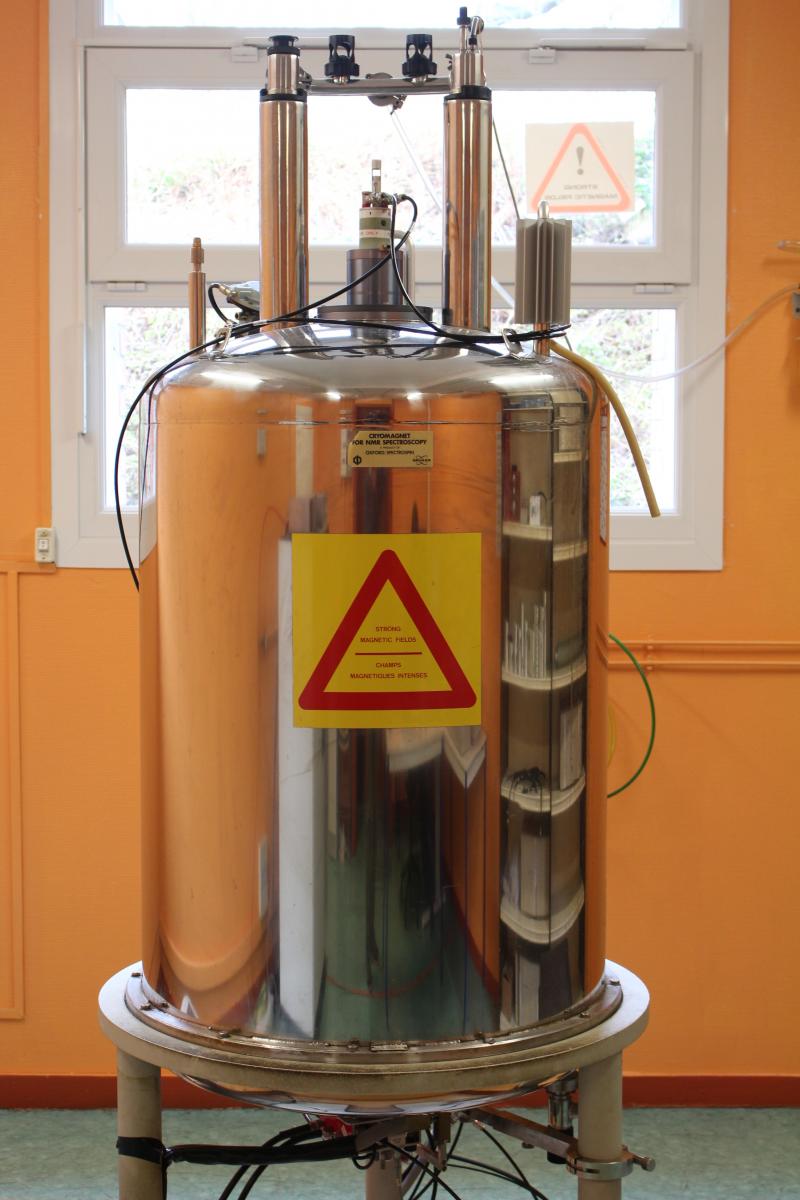Solid-state 400 MHz NMR spectrometer (ULille)
NMR
Description
NMR spectroscopy is a powerful method to probe the atomic-scale structure and dynamics of a wide range of soft matter samples, including polymer materials, nanocomposites, gels, colloids, surfactant self-assemblies, biomacromolecules and liquid crystals. Because NMR gives information on the local atomic scale, it can easily characterize the bonding environment of atoms in soft materials, which often lack long-range positional order. Furthermore, NMR is a sensitive probe of local dynamics at atomic scale over timescales spanning 15 orders of magnitude, from 10-12 s to 102 s. It can thus be used to study motions, including bond vibrations, conformational changes, rotational and translational motions of the molecules.
These spectrometers are equipped with 12 MAS probes for rotors with outer diameters of 7, 4, 3.2, 2.5 and 1.3 mm. These triple-channel NMR spectrometers allow the acquisition of a broad range of NMR experiments. As mentioned above, NMR experiments at multiple fields are useful to study the nuclear relaxation or to better constrain the anisotropic NMR interactions. These spectrometers are also equipped with frequency splitter to probe 13C-27Al, 13C-51V or 27Al-23Na proximities.
The specifications of the instrument are listed below:
Field: 9.4 T
Console: Bruker BioSpin Avance IV NEO 400 MHz with 3 channels
Temperature: BCU X'trem and nitrogen evaporator for variable temperature NMR experiments
Solid-state NMR probes:
- 1.3mm HXY (X=13C–31P ; Y=183W–11B) MAS probe;
- 2.5 mm HXY (X=29Si–31P ; Y=47Ti–87Rb) MAS probe;
- 2.5 mm HX (1H–19F ; X=113In–31P) MAS probe;
- 3.2 mm HXY (X=111Cd–31P ; Y=67Zn–141Pr) MAS probe,
- 4 mm HX (X=207Pb–31P) MAS probe;
- 4 mm HX MQMAS (X=29Si–119Sn) MAS probe;
- 4 mm HX (X=105Pd–13C) MAS probe;
- 4 mm HX (X = 101Ru–31P) WVT MAS probe, temperature range: [-60; 300°C];
- 4mm HXY (X=75As–31P ; Y=25Mg–119Sn) MAS probe;
- 5 mm HX (X=123Sb–31P) static probe, temperature range: [-120; 150°C];
- 7 mm low-γ HX (X=87Sr–123Te) MAS probe;
- 7 mm low-γ HX (X=35Cl-31P) MAS probe.

Local Contacts
- Dr. Manjunatha Reddy
- Prof. Olivier Lafon
- Dr. Julien TREBOSC
- Dr. Bertrand Doumert
